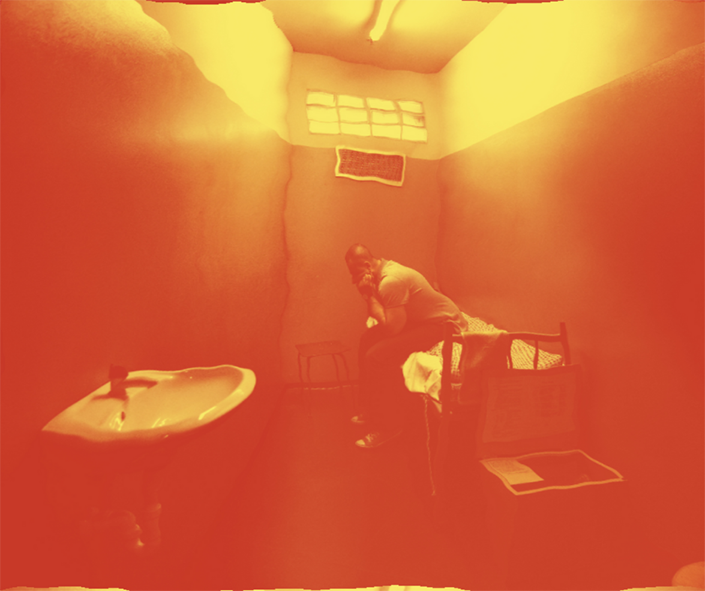In any situation, high temperatures can be dangerous, even deadly. Those on medications or with high blood pressure are even more at risk. Maintaining reasonable temperatures within prisons has been a long standing problem. In addition to the medical risks, heat triggers more fights and psychiatric emergencies.
An inmate at Rikers Island Prison, Jerome Murdaugh, fifty-six, mentally ill, an ex-Marine, homeless, and arrested for trespassing, could not make $2500 bail, was left in a cell for four hours where the temperature was 101 degrees, and died.¹
Dr. S. Vassalo, a native of Texas and not a stranger to heat, had this reaction: “When you closed the doors, they had just little dots in them, which provided the only ventilation from the outside. Even after 5 minutes, it was absolutely stifling – it was inconceivable to live there 23 hours a day, day after day.”²
In Louisiana, a lawsuit was filed to rectify the lack of air conditioning on death row. The judge hearing the case ordered that cell temperatures were not to exceed 88 degrees and ordered installation of air conditioning. The state is appealing the ruling, so the installation is on hold.
There is no national standard, although the Federal Bureau of Prisons manual states that prisons should aim for 76 degrees in summer and 68 degrees in colder months.
At Mendota prison in California, the air conditioning has repeatedly broken down. Inmates, after being locked in their cells at night with fans simply circulating warm air throughout and it was said that being in the cells was like being in a convection oven. The 2018 breakdown took 20 days to be repaired during which the temperatures were over 100 degrees every day. This has been compared to leaving a child in a car on a hot day.³ The Houston Chronicle expressed the belief that prisons should not be torture chambers.
Only one in four Texas prisons are cooled, just 30 out of 109 prisons. Yet, in June of 2021, State lawmakers declined to expand air conditioning to other locations. 7 States do not have air conditioning in any of their prisons; others have some, but not all locations covered. As climate change is bringing unprecedented heat waves to all parts of the country, this issue is becoming a matter a life and death.
While there is a growing judicial consensus that such conditions are cruel, unusual and inhumane, one former warden made the following statement, “You know they don’t get to go out and get a cheeseburger whenever they want, either. So, I mean, you know there’s a certain amount of things that you are giving up when incarcerated.”4
Sources:
- Peter Edelman, Not a Crime to Be Poor: The Criminalization of Poverty in America (The New Press, 2019)
- https://news.wypr.org/national/2014-07-24/hot-prisons-could-be-deadly-for-u-s-inmates-advocates-warn
- Lauren Weber, Federal Prison in California Faces Multiple Investigations Over Dangerous Conditions (Huffington Post, 2018)
- https://www.npr.org/transcripts/334049647


